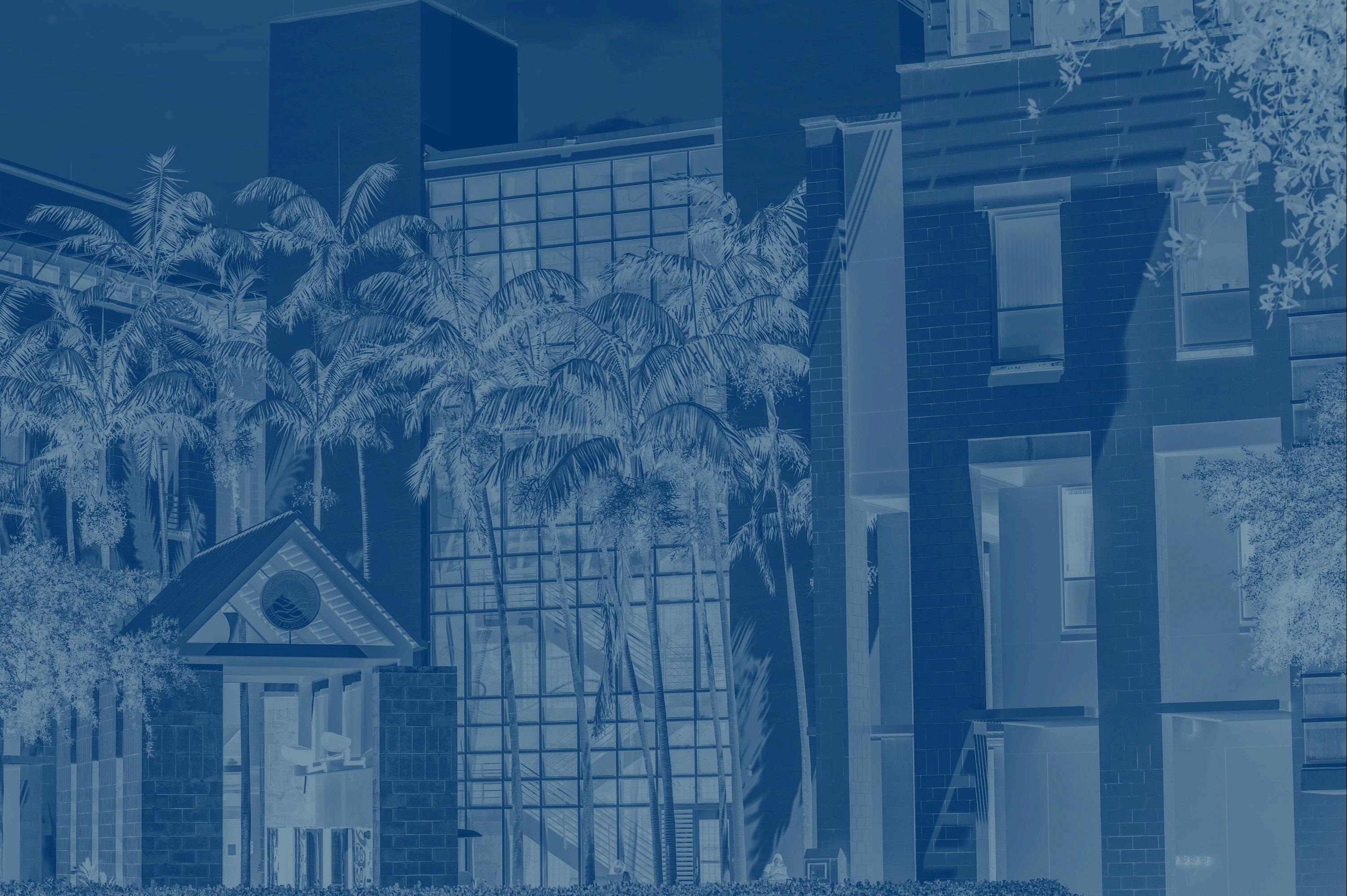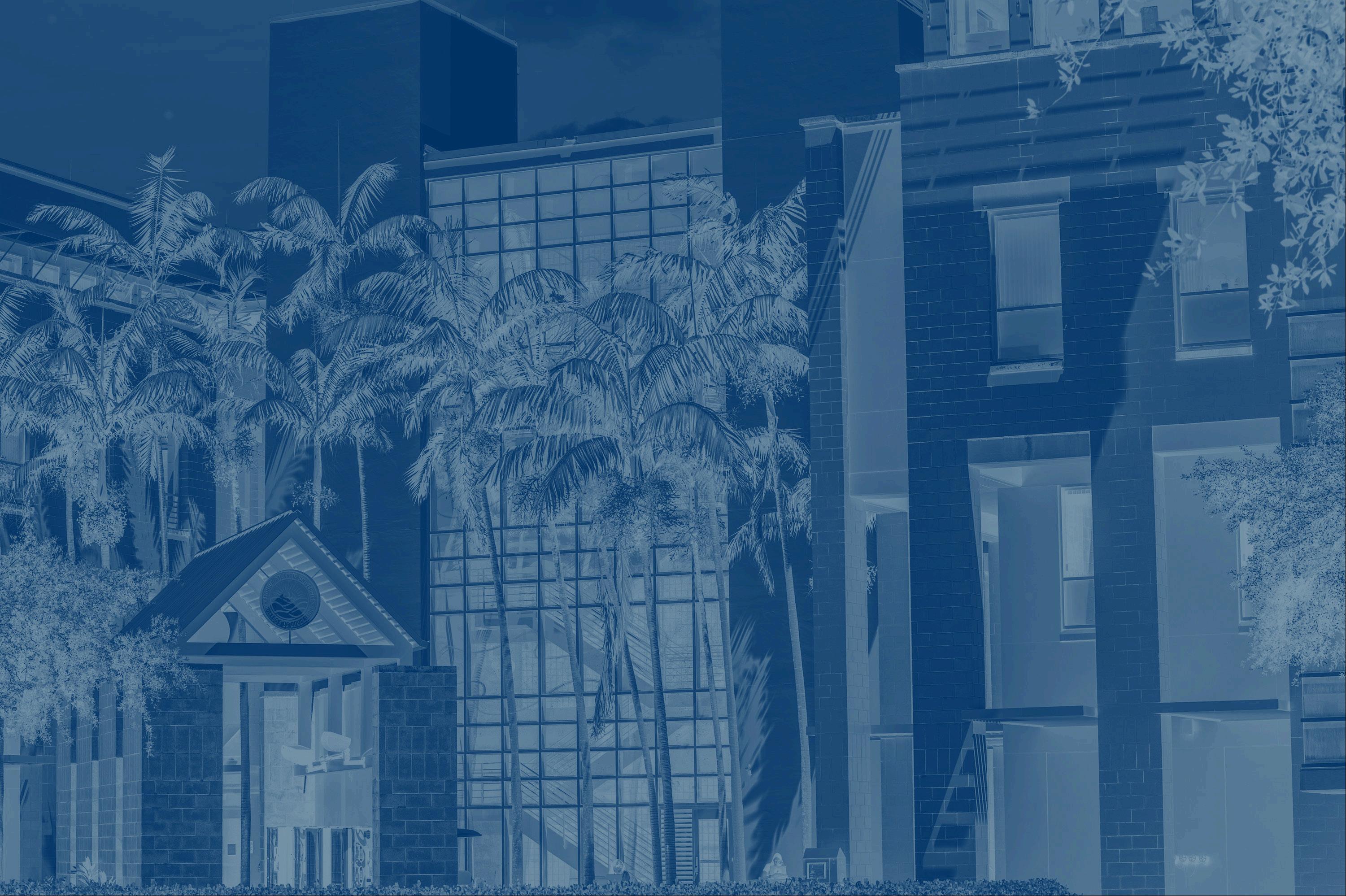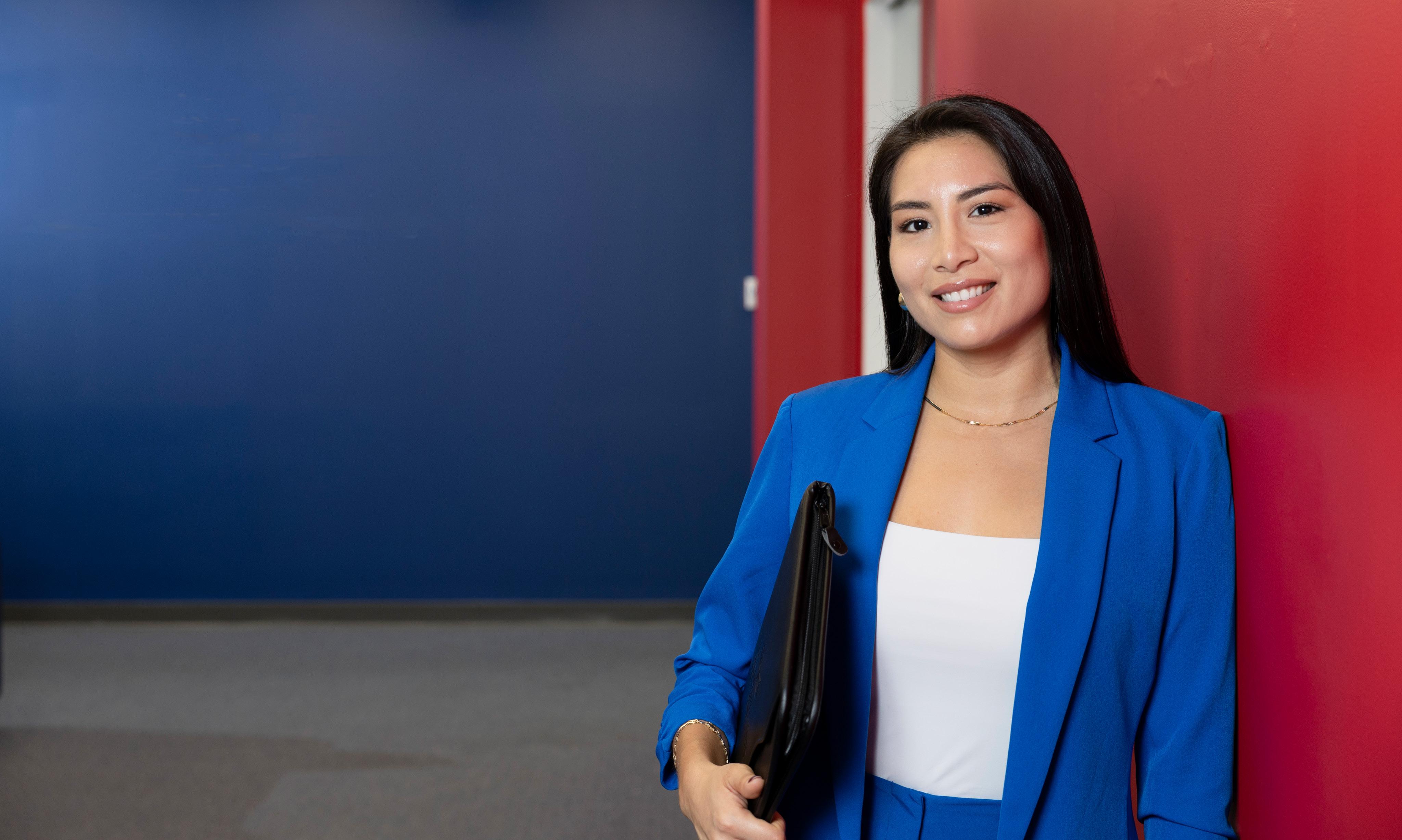







FAU Awarded $10M to Train People with Disabilities for High Tech Jobs
Addressing the STEM Teacher Shortage in High Needs Schools: Insights from Recent Research
FAU Secures $21M Promise Neighborhoods Grant for Broward Up
Empowering the Autism Community: FAU CARD's BRIDGE Transition to Adulthood Initiative and First Responder Training Project
FAU Lab Schools Receive $2M Grant and National Blue Ribbon Recognition
Introducing the CHAT Lab: Electrophysiological Indices of Learning in Speech
Shifting the Latinx Paradigm: Latin* Inspires New Understandings of Identity and Experience
Florida Atlantic University is spearheading a transformative initiative to bridge the gap between disability and high-demand technology careers. The College of Education and the College of Engineering and Computer Science have secured a $9,961,460 grant from the U.S. Department of Education’s Office of Special Education and Rehabilitative Services. This five-year project, titled “Advancing Career Choices for Employment Success in Technology” (ACCESS-Technology), aims to enhance the participation of transition-age youths and working-age adults with disabilities in the tech industry.
ACCESS-Technology is designed to equip individuals with disabilities with the skills and certifications needed for careers in cybersecurity, cloud computing solutions, and computer-aided design and 3D printing. The program will offer career counseling, work-readiness skills training, and customized training leading to industry-recognized certificates. This initiative not only opens doors to competitive integrated employment but also fosters a more inclusive and diverse workforce.
Ayse Torres, Ph.D., principal investigator and associate professor in the Department of Counselor Education, emphasized the groundbreaking nature of this project. “By bridging the gap between disability and technology careers, we are fostering a more inclusive workforce that will drive innovation in the 21st century,” Torres said.

By bridging the gap between disability and technology careers, we are fostering a more inclusive workforce that will drive innovation in the 21st century.

Science. This collaboration aims to create innovative technology certification courses tailored for individuals with disabilities.
Javad Hashemi, Ph.D., co-principal investigator and associate dean for research, highlighted the project’s significance. “This exciting project is the keystone in a series of initiatives that the two colleges have jointly planned to make Florida Atlantic a leader in technology-centered education and workforce development,” Hashemi said.
The project will provide comprehensive support, including career counseling to help participants crystallize their technology career interests, training leading to customized industry-recognized standards, and opportunities to acquire soft skills. Additionally, partnerships with leading technology companies will offer paid internships, providing both theoretical knowledge and invaluable real-world experience. The program will focus on youth and adults with disabilities who have a high school diploma and are current or former participants of state vocational rehabilitation services. However, the developed education and training modules will be available to all interested in a tech career.
exciting new avenues for our faculty to conduct pioneering research,” Silverman said.
The project will offer fully online, accessible technology training programs, integrating assistive technologies and accessibility features. A comprehensive “how to” manual will ensure consistent, high-quality interventions, enhancing career opportunities for individuals with disabilities. The initiative aims to recruit 240 participants, with an anticipated 80% completion rate for certificate programs. Half of the participants will receive paid internships, and 50% of certificate earners are expected to secure employment, while 25% may pursue further education in technology.


The STEM teacher workforce is under acute stress as schools experience increasing demand for additional STEM instruction. Research is particularly warranted in high-need schools, where the availability of qualified teachers is not keeping pace.

David Devraj Kumar, Ed.D., professor of science education and founding director of the STEM Education Laboratory at Florida Atlantic, co-authored a National Science Foundation funded study, published in the Annenberg Institute at Brown University’s EdWorkingPapers series. Collaborating with Michael Hansen, Ph.D., first author and senior fellow in the Brown Center on Education Policy and the Herman and George R. Brown Chair on Education Policy at the Brookings Institution, Li Feng Ph.D., professor of economics at Texas State University, and Nicolas Zerbino, M.P.P., senior research analyst at the Brookings Institution, the team applied descriptive methods to examine characteristics and qualifications of the STEM teacher workforce, using high-poverty schools to examine differences over time.
Conducting an analysis on nearly 30 years of national workforce surveys, results indicated that STEM teachers in high-need settings are more likely to possess a master’s degree than in prior decades. Math and physical science teachers are more likely to hold any degree in their aligned field than previously and are more likely to hold any field-aligned qualification in computer science. These gains are observed in high-need schools even as qualification levels in low-need schools stymy or decline.

Though prior studies examined these variables individually, there is a literature gap pertaining to how the STEM workforce in high-need settings may be changing, irrespective of other workforce segments. Contrary to belief, the STEM workforce in high-need settings has been resilient, maintaining qualification levels while modestly improving dimensions like physical sciences, math, and computer science. Further, significant need-based gaps in qualifications have persisted for nearly three decades across the board. Therefore, modest improvements must be viewed in context with a long-standing history of unequal access to qualified teachers. Gains in field-aligned teachers over time have been driven by those who are certified in-field only, a relatively weak qualification when considering subject matter knowledge.
Interestingly, most teachers in high- and low-need settings, who led physical sciences and computer science courses in 2020, were either unqualified to teach the field or were weakly qualified with field-certification, but no academic degree. The metrics for math teachers fared slightly better, but more than 20% across settings lacked an alignment of qualifications. “In this context, we still have a long way to go in making quality STEM education available for students across all socioeconomic barriers in our schools,” said Kumar.
Prior evidence indicates that significant staffing challenges in schools that serve socioeconomically disadvantaged students have led to declining teacher qualifications and instructional quality. These findings have serious implications for the quality of and access to robust STEM instruction for students across school settings.
In this context, we still have a long way to go in making quality STEM education available for students across socioeconomic barriers in our schools.
A weak STEM teacher supply impacts STEM industries, including those that propel economic growth and support national security. Weaker STEM instruction in high-need areas limits students’ access to rigorous content and lucrative college majors and careers. Inadequate teacher compensation contributes to high turnover and results in reliance on an inexperienced workforce. Addressing these issues is crucial for providing equitable access to quality STEM education and ensuring that all students, regardless of socioeconomic background, can succeed in STEM fields.


Under the leadership of Gregg Fields, Ph.D., principal investigator and FAU vice president for research, and a team of FAU administrators, faculty and research analysts from the College of Education, College of Social Work and Criminal Justice, and Division of Research will lead research activities crucial to the success of Broward UP.
Among these researchers is Co-PI Michael DeDonno, Ph.D., an associate professor and director of the Center for Research Excellence at FAU’s College of Education. “BrowardUP is about creating a comprehensive support system that empowers tomorrow’s leaders and strengthens communities,” said DeDonno. His expertise will contribute to a deeper understanding of the local community’s needs and the development of innovative educational strategies.
the program’s ambitious goals.


Broward UP is about creating a comprehensive support system that empowers tomorrow's leaders and strengthens communities
Major goals for this project include improving math and science readiness, developing predictive models for student attendance, and increasing family engagement, such as encouraging parents to read with young children. Another key research focus is addressing community wellness, health, and unemployment challenges, all of which play a crucial role in the success of Broward UP.
Broward UP’s impact is expected to extend to over 14,655 students and families in Broward County, with a focus on five interconnected pathways: early care and kindergarten readiness, K-12 academic success, high school-to-college transitions, workforce development, and community mobilization. This comprehensive approach ensures that the initiative supports students and families at every stage, from early education to postsecondary success.
Through this collaborative, place-based approach, FAU’s Broward UP program emphasizes local leadership and community involvement, creating a sustainable model for lasting change in Broward County. It is a major step forward in providing opportunities for individuals to succeed academically and professionally.
FAU is ranked No. 32 by U.S. News & World Report in the “Social Mobility” category, thanks to innovative programs and services that support low-income students.

Florida Atlantic’s Center for Autism and Related Disabilities (FAU CARD) is making significant strides in supporting individuals with autism spectrum disorder (ASD) and intellectual and developmental disabilities (I/DD) through two major initiatives: the launch of the BRIDGE Transition to Adulthood program and a continuing research grant to train first responders.


Supported by a two-year $315,000 grant from the Taft Foundation, BRIDGE, which stands for Building Resources for Independence through Self-Determined Growth Experiences, provides comprehensive support and guidance to autistic individuals as they transition from youth to adulthood. The transition period is a particularly challenging phase for this population and BRIDGE provides young adults with specialized support, consultation, intervention, and long-term person-centered planning to develop meaningful outcomes for adulthood.
Developed by FAU CARD Director Jennifer Percival, Ph.D., CRC, Assistant Director Jacqueline Wood, Ph.D., and Transition Specialist Lauren Veit, M.S., CRC, the BRIDGE initiative focuses on three core pillars: direct consultation and individualized support, education and training for community partners, and interactive services to build social, self-advocacy, and vocational skills. BRIDGE offers direct consultation and individualized support for participants, their families, and support teams, utilizing interactive transition toolkits, resource guides, and video vignettes. The program also provides quarterly training on transition-related topics and hosts an annual Transition Conference to share research and best practices. Additionally, BRIDGE offers interactive services such as adult hangout groups, an advisory council, and an annual Art and Autism Expo to support participants in building essential skills and achieving adulthood goals.

Developmental Disabilities Council (FDDC), totaling over $470,000 for this three-year project. The grant focuses on creating and delivering comprehensive training sessions for law enforcement officers, first responders, emergency medical personnel, and firefighters. Sessions provide a broad range of techniques to effectively and empathetically engage with individuals with ASD and I/DD, fostering trust and improving the quality of interactions.
The probability of first responders encountering individuals on the autism spectrum is increasing. While police officers and emergency personnel are well-trained for most cases, their approach may not always suit those with ASD and I/DD, potentially leading to tragic outcomes. Understanding the behaviors associated with ASD and I/DD is essential for achieving positive outcomes in any situation.
Training creators FAU CARD Executive Director Jack Scott, Ph.D., and Clinical Researcher Torica Exume, Ph.D., are enrolling law enforcement officers and first responders in the newly enhanced statewide train-the-trainer curriculum. While this training program equips first responders with the necessary skills to interact effectively with individuals with ASD, FAU CARD's recently launched BRIDGE initiative complements these efforts by supporting individuals with ASD as they transition from youth to adulthood. The project is also featured by the Florida Developmental Disabilities Council.
tangible difference in the lives of individuals with ASD and I/DD, while creating a brighter and more inclusive future.

Florida Atlantic University (FAU) Laboratory Schools have recently achieved two significant milestones, underscoring their commitment to academic excellence and innovation. The schools have been awarded a $2 million grant from The Marcus Foundation and have been named a 2024 National Blue Ribbon School.

The Marcus Foundation, established by Bernie Marcus, awarded a $2 million grant to FAU Lab Schools to establish the Marcus Research and Innovation Center at the A.D. Henderson University School and FAU High School campus in Boca Raton. This center aims to enhance the educational pipeline by fostering talented researchers and innovators who can address the nation’s most pressing challenges and contribute to a highly skilled workforce.
The Marcus Research and Innovation Center will feature over 12,000 square feet of STEM and research space, focusing on bioimaging, neuroscience, ocean science and conservation, healthcare, high-performance computing, and rapid prototyping. The center will be equipped with top-tier research instruments, typically not found in K-12 settings, and will host visiting scholars and researchers.
The center will introduce students to research as early as kindergarten, building on the lab school’s impressive track record of student publications, patents, and citations. Collaborations with Boca Raton Regional Hospital, the Max Planck Society, and UF Scripps will further enhance the research opportunities available to students.
The grant will also support the FAU Laboratory Schools’ Stiles-Nicholson STEM Teacher Academy (SNSTA) and The Cane Institute for Advanced Technologies (TCI). These programs bridge high-caliber research settings with middle and high school instruction, fostering innovation and creating lasting educational benefits for students nationwide.

In addition to the generous grant, FAU’s A.D. Henderson University School (ADHUS) and FAU High School have been named a 2024 National Blue Ribbon School by the U.S. Secretary of Education, Miguel Cardona. This prestigious recognition is awarded to schools that excel in academic performance or make significant strides in closing achievement gaps among different student groups. ADHUS and FAU High are among 356 schools nationwide to receive this honor, marking the second time in ten years and the third time in school history that they have been recognized.
National Blue Ribbon Schools are characterized by leaders who uphold high standards and articulate a clear vision of instructional excellence. These schools showcase effective teaching methods, robust professional development, and data-driven instruction, ensuring every student succeeds. Collaboration among families, communities, and educators is also a key component of their success.
The recognition and the grant collectively highlight the FAU Laboratory Schools’ role in setting new standards for educational achievement and innovation. These accomplishments reflect their dedication to creating opportunities for every student to thrive and their commitment to developing a globally competitive workforce and future school leaders.

The newly established speeCH And Time (CHAT) lab is situated within the Department of Communication Sciences and Disorders at the College of Education. Led by Assistant Professor and Principal Investigator Anne van Zelst, Ph.D., CCC-SLP-L, the CHAT lab is at the forefront of research into speech learning and the temporal dynamics of learning processes. Utilizing advanced electrophysiological techniques, including electroencephalography (EEG) and event-related potentials (ERPs), the lab delves into the intricate mechanisms underlying speech perception and production.
A primary focus of the CHAT lab is the phenomenon of offline learning, which refers to the changes in speech perception and production that occur during periods of rest or sleep following active practice sessions. This line of inquiry is crucial for understanding how the brain consolidates and enhances learned material in the absence of further practice. By examining the electrophysiological indices during these offline periods, the lab aims to elucidate the neural processes that facilitate the retention and refinement of speech skills.


In addition to offline learning, the CHAT lab investigates the influence of time-of-day on both procedural and declarative learning. Procedural learning involves the acquisition of skills and habits, while declarative learning pertains to the acquisition of factual knowledge. The lab's research explores how these types of learning are affected by the time of day at which practice occurs, and how this relationship is modulated by an individual's chronotype whether they are naturally inclined to be more alert and active in the morning or evening. This aspect of the research is particularly relevant for optimizing learning schedules and understanding the role of circadian rhythms in cognitive performance.
The integration of these resources allows for a holistic approach to investigating how different states of consciousness and times of day impact the learning process.
The CHAT lab's state-of-the-art facilities include a dedicated nap room and cutting-edge EEG equipment, enabling researchers to conduct comprehensive studies on the interplay between sleep, rest, and learning. “The integration of these resources allows for a holistic approach to investigating how different states of consciousness and times of day impact the

Research from the CHAT lab will contribute significantly to the field of communication sciences by providing insights into the neural mechanisms of speech learning and the temporal factors that influence it. Through their innovative use of electrophysiological indices, the lab's findings have the potential to inform educational practices and therapeutic interventions aimed at enhancing speech and language skills.


The term "Latinx" has encountered significant linguistic, cultural, and accessibility challenges, since its first usage in activist circles during the mid-2000s. The debate intensified last decade, particularly after the tragic 2015 Pulse nightclub shooting. Ultimately, a lack of consensus regarding “Latinx” within the Latin American community resulted in a mismatch between terminology and identity.
Recognizing the need for a more nuanced term, Cristóbal Salinas Jr., Ph.D., professor in Educational Leadership and Research Methodology and Editor-in-Chief of the Journal of Hispanic Higher Education, introduced the “Latin*” concept in 2016. Latin* challenges traditional notions of identity and encourages an understanding of individual experiences. The asterisk in Latin* offers a broader spectrum than terms like “Latino,” “Latina,” or “Latinx.”

Rather than homogenizing Latinidad, Latin* embraces the complexity and invites reflection on the intersectionality of identity. By sparking an open dialogue, Latin* creates space for the future. “It’s a way to honor the past while opening doors for new understandings of identity and experience,” Salinas said. By placing an emphasis on individual preferences and the diverse ways people choose to identify themselves, Latin* fosters belonging and provides a framework for educators and institutions to engage in transformative change.




Latin* is a way to honor the past while opening doors for new understandings of identity and experience.
For more than a decade, Salinas has provided valuable insights to help shape policies and practices in higher education. His mentoring, identity formation, and leadership frameworks help multicultural students and faculty navigate academic and professional challenges. Workshops and seminars have led to the development of specialized support services, improving academic success and retention rates among multicultural students. Additionally, Salinas’s research on faculty members with foreign English accents prompted policy changes that provided resources for these educators to succeed in their respective roles.
Recognized among the top 15 scholars of 2023, Salinas has authored 85+ publications, received 2,000+ citations and provided 250+ presentations in 20 countries. Frequently sought by CNN, NBC News, NPR, Telemundo, and Good Morning America, Salinas has been dubbed “a rising star in academe” and “an expert on Latinx students in college” by Diverse Issues in Higher Education and his research described as “futuristic” by The New York Times.
Advancing academic and public discourse, Salinas’s research continues to expand the understanding of complex concepts and empower individuals and communities to envision a brighter future. By leveling the









